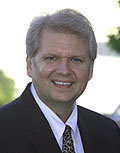Submitted by the Bond & Botes Law Offices - Friday, August 18, 2017
 Last week, the Jackson Free Press in Jackson, Mississippi reported that Mississippi payday lender, All American Check Cashing, Inc., is in trouble again. This time, it's with the Consumer Financial Protection Bureau (CFPB). The CFPB alleges that All American has engaged in a range of improper practices including hiding check cashing fee schedules, misleading people into taking out costlier loans, and wrongfully keeping consumer overpayments. All American has apparently not responded to these allegations. Michael Gray, the owner of All American, is also implicated in the alleged wrongdoing.
Last week, the Jackson Free Press in Jackson, Mississippi reported that Mississippi payday lender, All American Check Cashing, Inc., is in trouble again. This time, it's with the Consumer Financial Protection Bureau (CFPB). The CFPB alleges that All American has engaged in a range of improper practices including hiding check cashing fee schedules, misleading people into taking out costlier loans, and wrongfully keeping consumer overpayments. All American has apparently not responded to these allegations. Michael Gray, the owner of All American, is also implicated in the alleged wrongdoing.
According to the news article, the State of Mississippi has already revoked the licenses of All American and fined it nearly $900,000.00 and ordered the company to refund a total of $135,000.00 to seven hundred (700) customers. The CFPB is seeking to permanently ban Mr. Gray from financial businesses and seeks additional fines. According to the article, Mr. Gray sold most of All American's assets to an Ohio company named Community Choice Financial after the state of Mississippi revoked All American's licenses.
Payday Loans Are Unreasonable
Payday loans are some of the most expensive types of credit available. Often, consumers who are experiencing severe financial problems will turn to these companies to obtain money for basic necessities like rent and food. In my opinion, payday loan companies are essentially legalized loan sharks who pray the most financially vulnerable consumers. Their "fees" are exorbitant. Once a consumer gets caught in the payday loan trap, it can be very difficult to get out. This keeps the consumer in a vicious cycle of financial problems. Very rarely, if ever, is a payday loan a solution to any problem.
Fortunately, there is a way out if you are unable to pay back these loans. In a Chapter 7 proceeding, you can almost always "discharge" these loans. This means you are no longer legally obligated to pay these loans. Even better, after the loan is discharged in a Chapter 7 case, the payday loan company cannot try to collect on the loan. This means that they cannot call you, send you letters or other communications, sue you, get a garnishment against your wages or bank accounts, or contact you in any way about the loan.
There are some restrictions on filing a Chapter 7 case and, if these restrictions prevent you from filing a Chapter 7 case, you can usually file a Chapter 13 case. A Chapter 13 case also allows you to keep the payday loan company off your back (along with all of your other creditors). In a Chapter 13 case, you are allowed to propose a workable plan to pay your creditors, including payday loans, at a rate you can afford. Depending on your circumstances, you may not have to pay anything to a payday lender in your Chapter 13 case.
The bottom line is that if you are having problems with All American Check Cashing (or any of your other creditors), don't wait. Contact a reputable consumer protection attorney and explore your options. The offices of Bond & Botes offer free consultations to persons struggling with money problems and we would be glad to help you review your options.

 1-877-581-3396
1-877-581-3396

